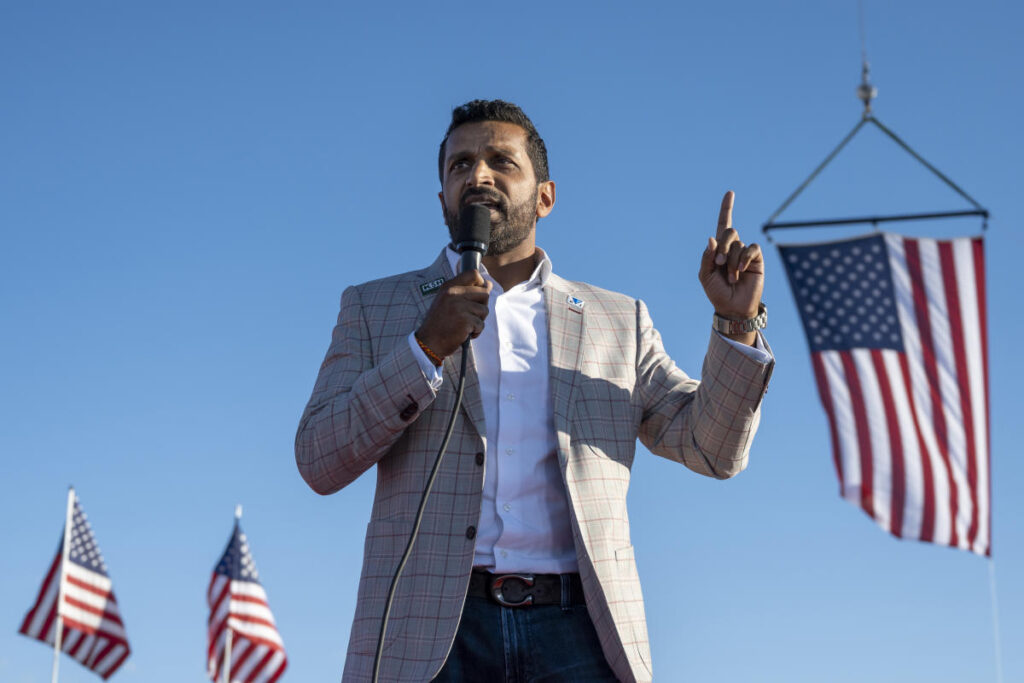President-elect Donald Trump has announced his intention to nominate Kash Patel as the new director of the FBI, signaling his aim to reshape America’s chief law enforcement agency. Patel is a close ally who has actively supported Trump’s narrative of a “deep state,” advocating for an overhaul of the government to eliminate perceived disloyal elements. The nomination reflects Trump’s lingering dissatisfaction with the FBI and other intelligence bodies following years of investigations that haunted his administration and culminated in his indictment. His selection of Patel, who has touted his role in revealing what Trump calls the “Russia, Russia, Russia Hoax,” underscores his desire for retribution against those he views as adversaries and his strategy to place loyalists at the top of federal institutions.
Patel’s nomination could lead to significant consequences for current FBI Director Christopher Wray. Wray, who was appointed by Trump in 2017, may be compelled to resign or face termination once Trump assumes office on January 20, 2024. Wray has been under scrutiny from Trump primarily due to the latter’s dissatisfaction with how investigations into his conduct were handled, including the controversial search of Trump’s Mar-a-Lago estate. This context sets the stage for an intense confirmation process in the Senate, as Patel’s candidacy is likely to provoke polarized reactions, especially in light of recent controversies surrounding Trump’s other nominations.
The dynamics surrounding the Senate confirmation further complicate prospects for Patel and other Trump nominees. While Republicans hold a slim majority, any defections among party members could hinder confirmations against a backdrop of unified Democratic opposition. Additionally, Trump has signaled his willingness to utilize a legislative loophole, potentially allowing him to make appointments without Senate approval if Congress is not in session. This strategy reflects both the urgency he perceives in filling these positions with loyalists and the contentious nature of the political landscape that awaits his presidency.
Kash Patel’s background and proposals for the FBI raise eyebrows regarding his qualifications for the role. His earlier calls to drastically reduce the bureau’s operations differ sharply from the stances of previous directors who advocated for expanding resources to combat crime and terrorism. Patel’s controversial views on reconfiguring the FBI—including converting its Washington headquarters into a so-called “museum of the deep state”—demonstrate his commitment to dismantling what he perceives as entrenched bureaucratic adversaries. Furthermore, Patel’s intentions to reinstate aggressive tactics against journalists who disseminate leaked information could drastically reshape the agency’s policies and its relationship with the media.
Patel gained prominence during his tenure under Rep. Devin Nunes, where he played a crucial role in crafting the Nunes Memo, which accused the Justice Department of misconduct in surveillance matters related to the Trump campaign. His framing of the FBI’s actions as politically motivated solidified his position as a staunch adversary of established intelligence practices. Despite this, former Attorney General William Barr has criticized Patel’s qualifications, suggesting that his appointment would not be in the best interest of the FBI, which requires leadership grounded in experienced oversight.
As Trump prepares for his return to the presidency, he remains dedicated to appointing officials who reflect his vision for governance, even if that means challenging political norms and institutional integrity. The anticipated confirmation battle for Patel could serve as a litmus test of Senate Republicans’ support for Trump’s agenda, particularly as his administration seeks to rectify perceived injustices and confront media narratives they deem harmful. Ultimately, this emerging saga within Washington’s political arena evokes tensions surrounding power, accountability, and the future shape of American law enforcement under Trump’s leadership.

